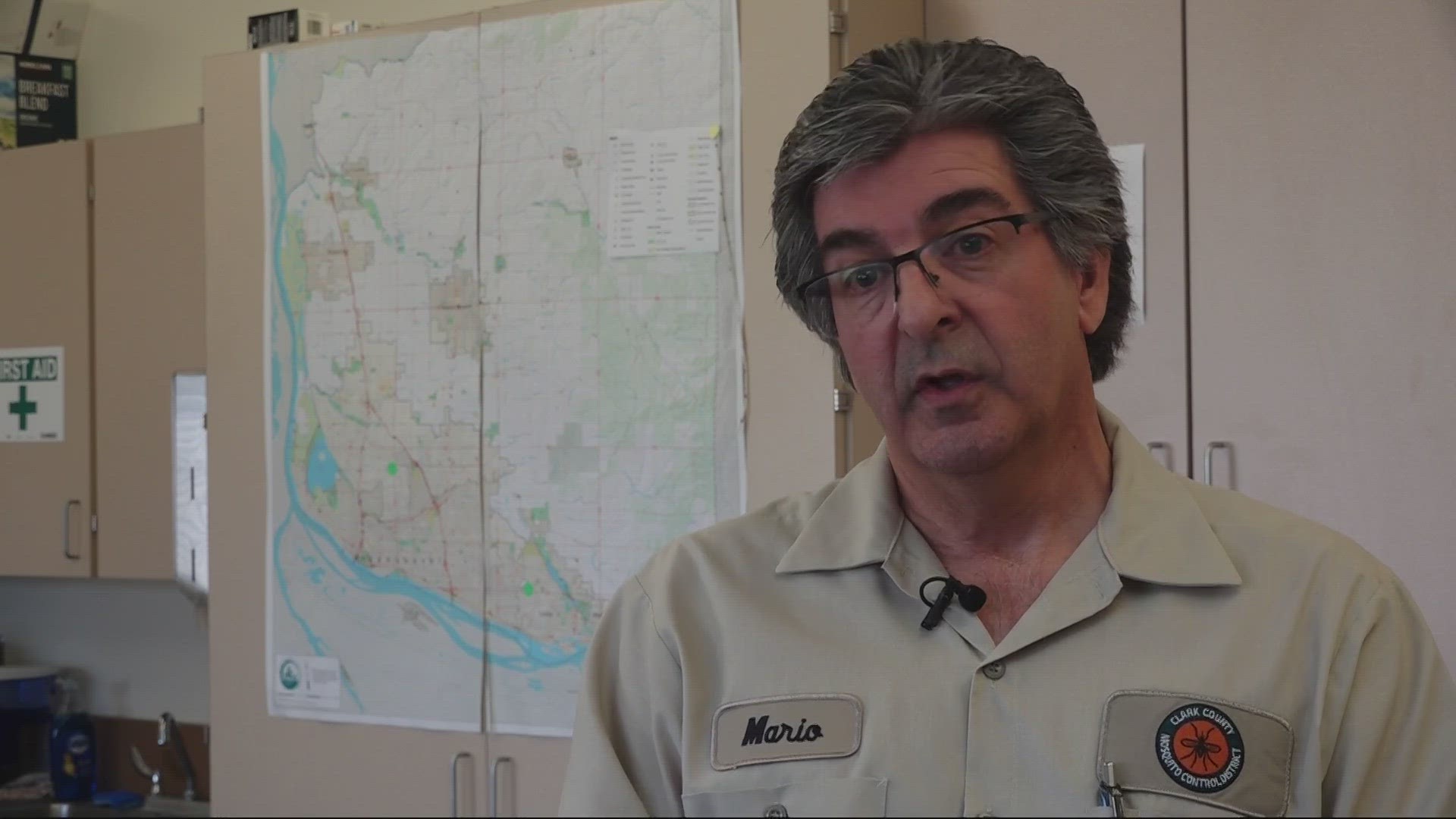VANCOUVER, Wash. — It's the time of the year again when mosquitoes are making themselves known once again, and experts say the unusually warm weather this spring isn't making the situation any better.
Staff at the Clark County Mosquito Control District (CCMCD) are staying busy this season, to say the least.
"Since Memorial Day weekend, we've probably had close to 600 service requests," said Mario Boifsvert, district manager at CCMCD.
The department is in charge of sampling, monitoring and killing mosquitos and the larvae they lay in bodies of water throughout their district.
"We prefer to do larvae sighting first," said Boifsvert. "This is what we're doing early in the spring. We're trying to make sure they will never hatch as adults, because those species could eventually carry West Nile (virus). But we don't have any West Nile yet in Clark County, but we don't want to take that chance."
CCMCD samples dozens of floodwater areas for larvae in the county, in part to better understand which of the 23 mosquito species found in Clark County are populating at different locations.
Aside from treating flooded areas near rivers rivers and nearly 60,000 catch basins and water drains, the department also treats head boxes.
"With this, we are pretty much able to dip any of the water bodies that we need to," said Madison Azevedo with CCMCD. "We'll basically go and skim the surface, and then use the water from the tank to be able to rinse it out into a bucket to see what we got."
The CCMCD has about 40 different mosquito traps within Clark County. Boifsver said these traps catch not just hundreds of mosquitoes per day, but thousands.
"Some traps we've found up to 25,000 mosquitos and more," said Boifsver.
After being collected from the traps, the mosquitos are moved to a freezer. Then a lab technician sorts them out and identifies them to better know which species are mating. A single insect can lay up to 200 larva at a time.
"Right now we have mostly the Aedes genus," said Rich Westre, CCMCD’s lab tech. "They're more likely to bite people than birds. So they're out there trying to find a meal."
All CCMCD services are free to those who live in Clark County. You can request to get an area serviced near your home by going to their website.

